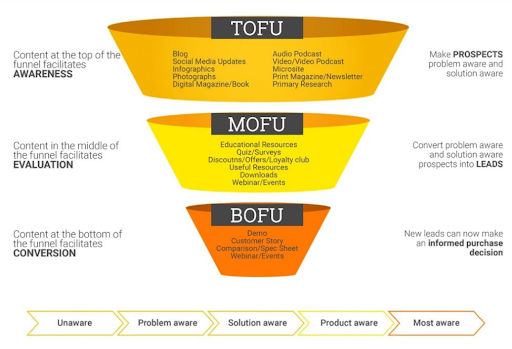Sales management can be a difficult business discipline to master. It involves not only understanding and applying the latest sales techniques, but also helping sales teams work at optimum capacity.
Managing a sales team is demanding enough under usual circumstances, however the recent trend towards remote work has added additional layers of complexity. Sales managers now not only have to oversee a shift in working practices – but deal with the fact that many potential clients and customers are working from home.
This has resulted in a necessity to adopt the best sales apps and maintain extra flexibility to keep teams productive and motivated.
What is Sales Management
Sales management refers to organizing and developing a sales team and its operations in order to maximize sales revenue and efficiency.
As such, a sales manager is someone who uses best practices such as effective sales techniques, pipeline management, and psychology to improve their sales reps’ performance.
Benefits of Sales Management
There are numerous benefits to sales management. These include, but are certainly not limited to:
- Increased Revenue: Sales management can make the difference between an outdated sales process or a modern sales process. By eliminating bottlenecks in your script or funnel, you can increase conversions.
- Time Efficiency: Everyone is pressed for time these days. If you can save time for your salespeople, your clients, and your sales support team, you’re winning.
- Team Morale: Salespeople need to be managed because the position is emotionally challenging to do day in and day out. When you have great sales management leaders, they can inspire your team to stay positive.
- Client Happiness: Make no doubt about it, your clients want your sales process to be short just like you. The less time they have to be in sales meetings, the sooner they can be enjoying the benefits of your offer.
- Funnel Insights: If you find efficiencies in one part of your sales process (such as zoom) calls you can potentially apply it elsewhere (such as your Facebook Ads or email list).
Sales Management Strategies
Sales managers will have differing roles and responsibilities depending on their business. However, there are certain key strategies that tend to underpin the sales management process.
In this post we’ll outline some of these key approaches and offer some tips on how to maximize their potential:
1. Building the Sales Team
Sales teams often contain numerous types of employees from varying backgrounds. These include account executives, sales and business development reps, sales specialists, customer success reps, and more. It’s the job of a sales manager to hire, onboard, and train all team members.
Without a robust sales hiring strategy a company is at risk of ending up in a costly cycle of consistent turnover. Recruiting wrongly and losing an employee means having to hire someone else to fill that position – and that’s expensive.
To help you in advance of the selection process, create a hiring profile for your sales team so you can identify the types of reps you want. Create a list of attributes you would ideally like in an employee to help you develop your profile. Then, during the selection process, look out for candidates who exhibit these types of behaviors and traits.
The following characteristics indicate that a candidate could potentially be an asset for your team:
- Curiosity: Are candidates able to identify, question, and pursue answers?
- Feedback: Are they able to receive and process feedback effectively?
- Motivation: Do they understand what motivates them?
- Listening: Are they capable of listening in order to absorb information?
- Empathy: Do they have the ability to truly identify with prospective customers and give them the best customer experience possible?
- Closure: Are they aware of when to hang on and when to let go?
- Timing: Do they understand when to be patient?
In order to identify the above characteristics, use well-constructed screening questions. For example, if they have worked in a customer services environment ask them to talk about a time they had to exhibit patience with a customer. Alternatively, create situations where candidates have the chance to demonstrate these attributes.
Once you’ve recruited a new member of the sales team, offer them a strong onboarding process that doesn’t throw them in at the deep end. Have systems in place so that employees can work from home. Then help them get started with their new technology by offering them one-to-one training or a demo on how to use their new equipment.
Once you have a good team in place, it’s time to make sure they have the right ongoing training.
2. Training the Sales Team
Sales is a highly demanding area, so in order to succeed the team needs to be highly motivated. Coaching and mentoring play an important role in this. In fact, coaching a sales team is listed as a top practice when it comes to higher quota attainment. This makes it an important aspect of sales management strategy.
In addition to coaching and mentoring, leveraging the services of corporate travel agencies can alleviate some of the time constraints faced by overloaded sales managers. By handling travel arrangements efficiently, these agencies enable managers to focus more on nurturing and motivating their sales teams, ultimately contributing to higher quota attainment and overall sales success.
Sales leaders need to have strong personalities in order to inspire their team to achieve. They also need to have a wide range of sales skills and working knowledge of the latest sales performance boosting tools, such as CPQ software.
Unfortunately, however, this scenario often falls short. Fewer than a quarter of organizations cited sales coaching as a strength. Many overloaded sales managers say they struggle to find the time.

To make sure you’re in prime position to achieve or exceed sales quotas you need to make coaching a priority.
Tips for training sales employees
Here are some general rules set out by Gartner:
- Develop employees based on a sales member’s unique expertise and experience.
- Provide advice-oriented feedback.
- Provide continuous coaching – at frequent intervals and provide training across a broad range of skills.
- Introduce employees to others within the company for coaching.
- Act like a cheerleader. Give empowering and positive feedback and enable team members to drive their own development.
As part of your ongoing sales team development, you’ll need to focus on prospecting techniques. Prospecting training is an essential aspect of the sales management strategy but how the sales manager goes about this will depend on the company sector and target audience.
Whichever techniques are used, understanding how to train staff to prospect is key to guiding the sales team. Without a well-defined prospecting process in place, individual members will be operating randomly. And that means they won’t be able to convert leads into customers and achieve their quotas.
3. Coordinating Sales Processes
It’s up to the sales manager to determine the processes the sales team must follow. Based on their prior experience, the manager needs to make sure teams are going in the right direction.
Creating the sales funnel is an essential aspect of developing an effective sales management strategy. Sales managers need to use their sales experience to put together a sales funnel that reflects how their prospective customers move along the path to purchase.

Tips on optimizing a sales channel strategy
Divide your sales funnel into stages, then move leads through the system. Using segmentation, you can ensure you target leads with the appropriate marketing content at the right time. Automate processes with lead scoring activities so your sales team can focus on hot, sales-ready prospects.
As part of an effective sales channel strategy, you need to ensure sales and marketing are working collaboratively in order to fuel the pipeline with high quality leads. Once marketing has generated qualified leads they should feed these into the CRM, ready to be nurtured by sales.
Likewise, sales need to feed back on the quality of the leads and report success or lack of it back to marketing. Encourage reps to make use of the latest tools – e.g. sales email tracking apps – to help you see where a prospect is in the sales funnel.
4. Setting Goals and Quotas
Sales managers are responsible for setting goals for each member of the team. These quotas must be realistic and strike a balance between challenging and achievable.
Use a tried and tested framework, such as SMART objectives, when setting goals, and align them with the company’s overall strategy.
Map team goals to individual activity and sales performance objectives. Break down goals into weekly, monthly, and quarterly targets, and reward team members when they hit these smaller milestones.
5. Reporting on Sales Performance
Sales managers need a diverse, in-depth, and accurate range of data at their disposal so they can create reports that outline performance and identify areas for improvement. With different information coming in from a variety of sources, managers need to be able to analyze insights quickly and organize this information.
Sources of data can come from all directions. For example, if you use a call recording service you can gather important nuggets of information around the quality of calls and their outcomes. This can help you decide which individuals require more training and in which areas.
When selecting a sales CRM, opt for a platform that enables you to:
- Provide the team with access to targeted sales leads.
- Build targeted lists from a database and filter via various criteria.
- Make use of verified data, e.g. with a built-in real-time email verification system. Cleaner verified data will boost conversion rates.
- Search contacts and companies so you can target them appropriately.
- Customize features so you can append fields and enrich and enhance your own data.
- Track and communicate changes and feedback with all teams across the company – as well as automate administrative tasks.
- Create reports and measure performance.
- Access data from all devices.
Emerging Trends in Sales Management for 2024
There is always something new to learn when it comes to sales management. If you fall behind, you might see your competitors gaining more market share and winning clients that could have been a perfect fit for your company.
So to stay on the cutting edge, make sure to understand and incorporate these 5 trends in sales management for your company:
1. Customer Relationship Management (CRM)
Combining technology with a focus on relationship selling has made CRMs a big trend in sales management. CRMs help integrate the information you have about customers into marketing and sales, creating a lead generation system, in order to shift focus from short term to long term customers.
Every person who touches a customer can access their prior information and craft a proposal, meeting, or product to their exact needs.
2. Sales Diversity and Inclusion
No longer are salespeople simply young or middle-aged males. And you don’t necessarily need higher education to excel in the sales profession.
By bringing in more diverse sales reps you can honor the values of inclusion while also driving additional sales revenues.
3. Global Mindset
Your ideal market might not be located within a few miles of your headquarters anymore. Modern sales management involves looking at a broader global spectrum to uncover hidden niche markets and create selling relationships where they might not have existed before.
4. Technology
Old school selling often involves face to face (in person) or phone selling. Modern selling combines more technologies, like email, text, and video calls.
Using new technologies enables your sales team to engage with prospects via whatever channel they prefer, and in whatever location they reside in.
5. Synergy with Marketing
In the past, there was a lot of lag time between collecting marketing data and handing it off to the sales team.
One of the most important trends in sales management today is providing instant insights about customers to sales managers who can then prepare their teams. By doing this, you can resonate with the precise problems or goals that your market has, up to the minute.
Conclusion
Effective sales managers need to have a variety of skills. They need to be able to recognize and onboard talent, coach individual team members, create a motivational work environment, and streamline the sales processes by harnessing technology.
Remote working means that sales teams need a tech stack that allows for both internal communication – e.g. via emails – as well as reliable video calls with prospects. To boost productivity when working at home the team should be encouraged to take advantage of the many time-saving tools, such as email productivity apps, that are widely available.
Flexibility is another aspect that needs to be incorporated into a sales management strategy. Sales managers should ask the team for their perspective and take a dynamic approach so team members can work to their optimum capabilities.
Track emails, email reminders & templates in Gmail for free
Upgrade Gmail with the features it’s missing
Add to Gmail



